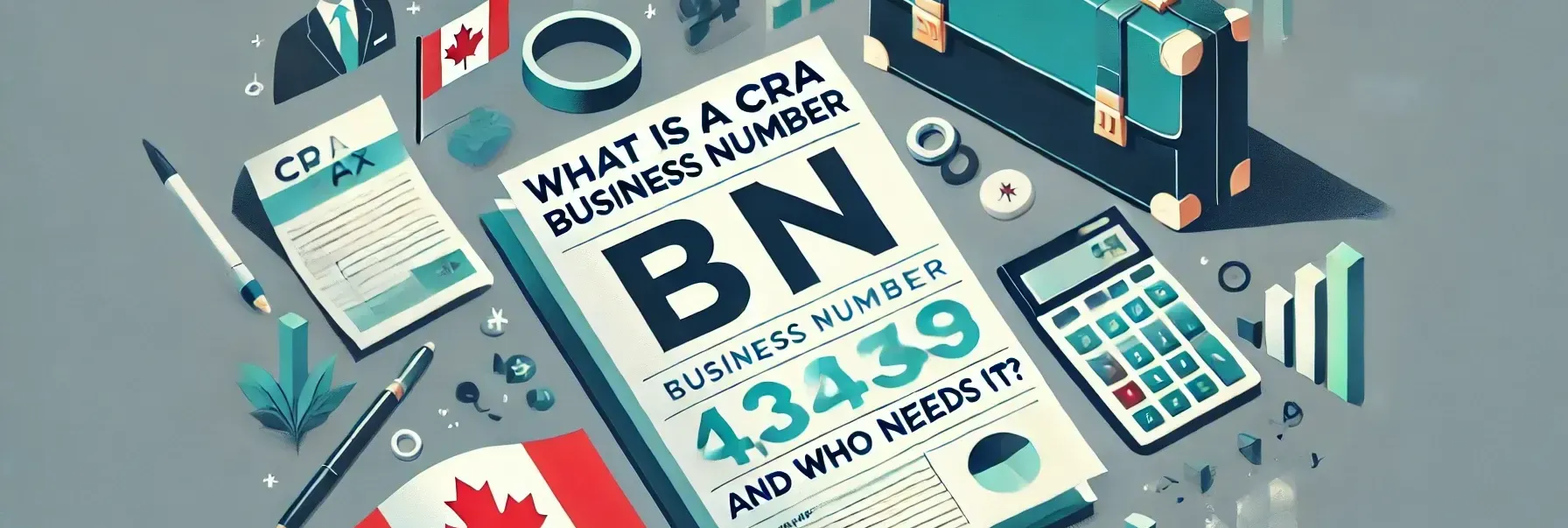What Is a CRA Business Number (BN) and Who Needs It?
Along with your new venture comes some administrative tasks, including understanding and potentially registering for a
business number (BN). If you’re unsure what a BN is or if you need one, here’s a breakdown of everything you need to know.

What Is a Business Number?
A business number (BN) is a 9-digit number issued by the Canada Revenue Agency (CRA). It serves as a unique identifier for businesses and self-employed individuals when interacting with the CRA and other government agencies.
Do I Need a Business Number as a Sole Proprietor?
If you’re a sole proprietor or in a partnership, you may not need a business number unless you are required to have specific CRA program accounts, such as:
- GST/HST (RT): If you collect GST/HST on sales.
- Payroll deductions (RP): If your business is incorporated or has employees.
- Corporation income tax (RC): For incorporated businesses.
- Import-export (RM): If your business imports or exports goods/services.
How to Register for a Business Number
You can easily register for a BN through the CRA Business Registration Online (BRO) portal. You’ll also automatically receive a BN if you:
Register for any CRA program accounts (GST/HST, payroll, etc.)
Incorporate your business federally
Register/incorporate in certain provinces, including:
- British Columbia
- Manitoba
- New Brunswick
- Nova Scotia
- Ontario
- Saskatchewan
Is a GST/HST Number the Same as a Business Number?
No, the GST/HST number is not the same as a business number. While your business number remains constant, a GST/HST number is appended to the business number if your business is required to collect and remit GST/HST.
For businesses with annual revenues below $30,000, a GST/HST number is optional, although you’ll still receive a business number without the GST/HST identifier.
Examples of a Business Number
Here’s how a business number might look, and how it changes when CRA program accounts are added:
- Business number: 123456789
- GST/HST account: 123456789RT0001
- Payroll deductions account: 123456789RP0001
- Other CRA Program Accounts
While most self-employed individuals may not need additional accounts, it’s helpful to know about other CRA program accounts, such as:
- Excise duty (RD): For businesses charging excise duty on products.
- Excise tax and special levies (RE): For businesses charging excise tax.
- Air travellers security charge (RG): For air carriers charging this fee.
- Registered charity (RR): For charitable organizations.
Conclusion
Registering for a business number is essential for managing your taxes and interactions with the CRA as a business owner or self-employed individual. Whether or not you need one depends on your business activities, but understanding how to register and what accounts to include can simplify your tax reporting and compliance.
Key Takeaways
- A CRA business number (BN) is a 9-digit unique identifier for businesses used to complete tax filings.
- Sole proprietors may not need a BN unless they require specific program accounts, such as GST/HST or payroll.
- A GST/HST number is an extension of the business number with a specific code attached for tax purposes.











